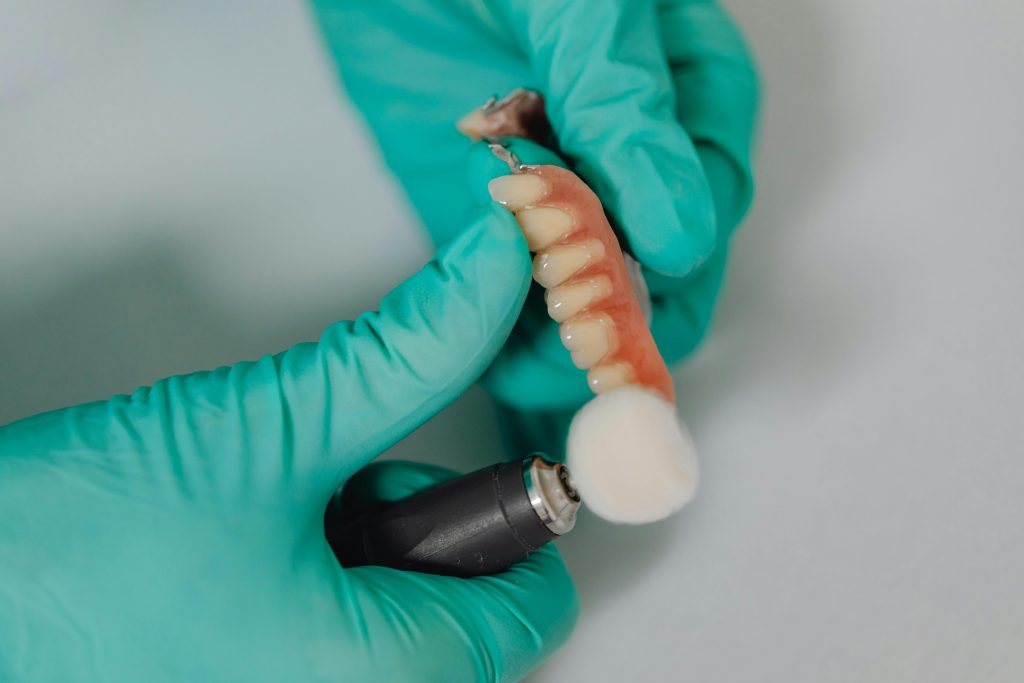Missing teeth can affect more than just your appearance. They can change how you speak, chew, and even influence the structure of your face. For many, dental implants offer a reliable, long-term solution that not only restores function but also boosts confidence and oral health.
Unlike dentures or bridges, dental implants are designed to look, feel, and function like natural teeth. In this article, we’ll explore how dental implants work, their benefits, the process, and what to expect from the treatment.
What Are Dental Implants?
Dental implants are artificial tooth roots made of titanium or other biocompatible materials. These implants are surgically placed into the jawbone to act as a stable foundation for replacement teeth. Once placed, they fuse with the bone through a process called osseointegration, which typically takes a few months.
After the implant has integrated with the jawbone, a crown is attached to the top. This crown is custom-made to match your natural teeth in shape and color, ensuring a seamless and natural look.
Why People Choose Implants
There are several reasons why dental implants have become the gold standard in tooth replacement.
First, they provide a permanent and durable solution. Unlike traditional dentures, implants don’t slip or require adhesives. This stability allows patients to eat and speak with ease.
Second, implants help preserve the jawbone. When a tooth is lost, the underlying bone begins to deteriorate. Implants stimulate bone tissue just like natural tooth roots, helping to prevent bone loss and maintain facial structure.
Finally, they offer a more natural appearance and function. Because implants are anchored directly in the jawbone, they feel much like natural teeth and blend seamlessly with existing ones.
The Implant Process
Getting dental implants is a multi-step process that can take several months. It begins with a thorough dental examination, including X-rays or 3D imaging to assess the health of the jawbone and surrounding structures.
If the jawbone is strong enough, the implant can be placed during a minor surgical procedure. In cases where bone density is low, a bone graft may be necessary to create a stable foundation.
After the implant is placed, healing time is essential. The implant must bond with the jawbone, which usually takes three to six months. Once healing is complete, an abutment is attached to the implant. This small connector supports the final crown, which is designed to match the size, shape, and color of your other teeth.
Are You a Good Candidate?
Dental implants are suitable for many people, but not everyone is an ideal candidate. Good overall health, healthy gums, and adequate jawbone are key requirements. People who smoke, have uncontrolled diabetes, or suffer from severe gum disease may need additional treatments or alternatives.
That’s why it’s important to consult with a skilled dental provider who has experience in implant dentistry. Many clinics, including practices like Ocala Dental Care, integrate advanced technology and personalized treatment planning to ensure optimal outcomes. Working with a team that understands both the technical and aesthetic aspects of implant dentistry can make a big difference in your long-term satisfaction.
Benefits Beyond the Smile
The benefits of dental implants go far beyond appearance. They improve chewing efficiency, which can enhance digestion and overall nutrition. Unlike removable dentures, implants do not interfere with your sense of taste or speech.
They’re also easier to care for. While regular brushing and flossing are still essential, implants don’t require special cleaning solutions or adhesives. With proper care, they can last 20 years or more.
Emotionally, having a full, functional smile can boost self-esteem and reduce anxiety in social settings. Many patients report feeling more confident and comfortable after receiving their implants.
Risks and Considerations
As with any medical procedure, there are some risks. Implant surgery may involve minor complications such as swelling, bruising, or infection. In rare cases, the implant may not fuse properly with the bone and need to be replaced.
These risks are generally low and can be minimized by choosing a qualified dental professional and following all post-surgery care instructions.
Cost is another factor. While implants may be more expensive upfront than dentures or bridges, they often prove more economical in the long run due to their durability and lower maintenance needs.
Dental implants represent one of the most advanced and effective ways to restore missing teeth. Their natural appearance, durability, and health benefits make them a smart choice for many patients looking to improve their smiles.
If you’re considering dental implants, take the time to speak with a dental provider who can evaluate your unique needs and guide you through the process. Clinics with comprehensive care and modern technology often provide a more seamless and comfortable experience.
Replacing missing teeth can transform not just your smile, but your entire outlook. With dental implants, you can enjoy a renewed sense of confidence and lasting oral health.



